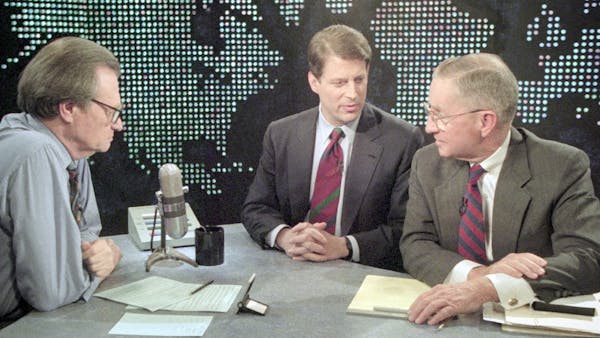It has been my honor to serve as Mexican consul in Minnesota for the past eight months. I arrived with knowledge of this state's dynamic and innovative business climate and the strength of its educational, cultural and social institutions. I have received a warm welcome. Living here and meeting with business, civic and community leaders, my admiration for this remarkable state has only deepened.
I've also been amazed with the strength of the Mexican community here. It is organized. It is entrepreneurial. It has helped to reshape and revitalize cities. As it has flourished, it has been able to share its cultural traditions with the larger community. The larger community has given back, forming social and educational institutions to work with immigrant populations.
Minnesota and Mexico are uniquely poised to build on existing partnerships. The mutual ties are more than a century old. In Dionisio Valdes' research titled "Mexicans in Minnesota," he states that the first known Mexican resident was Luis Garzón, a musician who arrived in 1886. By 1900, there were 24 Mexicans registered in the census, and many more started to come to work for railroads and meatpackers and in the sugar-beet industry. According to the last census in 2010, 176,007 Mexicans were living in Minnesota. They have come to contribute to the state's economy.
Recognizing the growing presence of Mexicans in Minnesota, the consulate opened its doors in 2005. It was created with two distinct missions: to provide consular services to the Mexican population living in Minnesota, northern Wisconsin, and North and South Dakota, and to promote and strengthen collaboration on trade, education, culture, tourism and social policies.
The consulate has had the splendid opportunity to work closely with local and federal authorities, law enforcement agencies, nonprofit organizations, corporations and companies, as well as with educational and cultural institutions.
Today, Mexicans and Mexican-Americans play an important role in Minnesota's economy, creating jobs while opening businesses yet also being an important target market with purchasing power of around $4 billion in 2012. According to Bruce Corrie, professor at Concordia University in St. Paul, more than 3,000 Mexican-American firms operate in Minnesota, and Mexican nationals in the state paid $97 million in taxes in 2013.
Trade between Minnesota and Mexico has expanded dramatically since NAFTA was created 20 years ago. Just in the last decade, exports from Minnesota to Mexico increased 334 percent, reaching almost $1.3 billion annually. Today, Mexico is Minnesota's third-largest international business partner. Mexico is also the third-largest trading partner of the United States, with a total trade of $500 billion annually.
Much more can be done together as North American partners. The leaders of the three countries will meet next month to discuss how we must work jointly to increase our competitiveness as a region for our mutual prosperity.
We have been thrilled with the Minnesota International Center's decision to choose Mexico as a focus country this year, after Canada in 2013. It gives us the opportunity to share the richness of our country and to have conversations about how to take our relationship to a deeper level.
We will share the visionary reforms proposed by President Enrique Peña Nieto and passed by Congress last year in the areas of labor, education, finance, telecommunications and energy. These reforms will add to Mexico's economic stability tools so it can become more competitive, improving opportunities to do business with Mexico.
Beyond trade, our social and cultural links have become more relevant. Minneapolis is a sister city of Cuernavaca and St. Paul of Manzanillo. More than 150,000 Minnesotans travel to tourist destinations in Mexico annually. Mexican food and cultural traditions such as the Day of the Dead have become part of the Twin Cities' cultural life. Minnesota museums frequently showcase Mexican artists, and there is a rich mutual exchange between performing-arts groups. Many Mexican "Dreamers" are glad to go to college to continue their studies, while several universities send their students to learn Spanish in Mexico.
The Minnesota International Center's events featuring Mexico will show the dynamism of the country and its increasingly sophisticated economy with interesting educational and business events. It also will showcase our music, art, cuisine and films. I invite you to follow the center's website.
I hope to see you there!
Alberto Fierro is consul of Mexico in St. Paul.
Cut down on electronic waste in Minnesota
In Minnesota, statistical gloom amid the hope of a progressive-led boom


